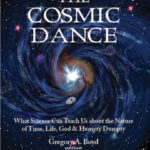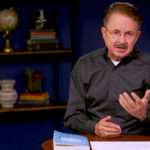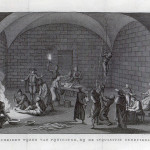We run our website the way we wished the whole internet worked: we provide high quality original content with no ads. We are funded solely by your direct support. Please consider supporting this project.

Is Greg Too Progressive for Today’s Evangelicalism?
Roger Olson recently posted a very interesting essay entitled Stretching the Evangelical Tent Right and Not Left where he notes that many influential leaders within evangelicalism are pushing to include fundamentalists while simultaneously excluding those they consider “too liberal.” It made us wonder if or for how long Greg and other progressive Evangelical theologians like him will be considered “Evangelical.”
We’ve noticed some signs that fundamentalism might be gaining some traction in many Christian universities. The recent termination of Thomas Jay Oord, a tenured professor at Northwest Nazarene University, is a good example of this. (He was allowed to stay on with a temporary contract while he makes his transition away from the University.) Oord has been open about his rejection of young earth creationism and acceptance of evolution and is also an open theist. Although the University claimed that the termination was driven by financial concerns, there are a number of indications that cause many to suspect this is not the case. And this certainly isn’t an isolated incident. There’s an escalating fear at some Christian universities that leaning in a liberal direction or even daring to honestly examine particular questions might spell the end of a career.
We wanted to share a portion of Roger’s essay and encourage you to read it in its entirety. We’d love to hear your thoughts over on our Facebook page. Do you think Greg still fits within the Evangelical “tent”? Does it matter? What do you think is at stake?
Here’s a snippet of Roger’s observations:
My own tendency has long been to embrace as fellow evangelicals fundamentalists insofar as they want to play nice with other evangelicals and not specialize in pointing an accusing finger at other evangelicals for having a “compromised gospel.” But that was part of the DNA of American fundamentalism and, to a certain extent, still is. But major movers and shakers of American evangelicalism now want to broaden the evangelical “tent” to include true fundamentalists who don’t want to play nice with other evangelicals while at the same time narrowing the evangelical “tent” to exclude postconservative/progressive evangelicals who believe in generous orthodoxy. In other words, the center of the evangelical movement is shifting and has been since about 1980. And the evangelical “tent” is gradually being broadened to include fundamentalists and narrowed on the other “end” to exclude progressive evangelicals.
If there is ever to be another “Pilgrims on the Sawdust Trail” conference (or something like it—a kind of “summit” of evangelical scholars) what I would like to see is a broader spectrum of evangelicals represented on the roster of keynote speakers. If the conference includes separatistic-literalist fundamentalists it should by all means also include progressive/postconservative evangelicals (at least one) and a Pentecostal. I won’t hold my breath, though.
Image by rainy city via Flickr
Category: General
Tags: Evangelicalism, Fundamentalism, Orthodoxy, Progressive Christianity, Roger Olson, Thomas Oord
Related Reading

Roger Olson’s Review of The Cosmic Dance
Today we wanted to share a review of The Cosmic Dance by esteemed theologian Roger Olson. You can check out an excerpt below or you can read the whole review here. You can place an order for The Cosmic Dance here. The Cosmic Dance is Greg’s (and friends’) attempt to present the case that the best contemporary science supports viewing…

Podcast: Do You Know Roger Olson Personally?
Greg talks about his relationship with Roger Olson and why he and Roger referred to themselves as ‘The Odd Couple.’ http://traffic.libsyn.com/askgregboyd/Episode_0361.mp3

Read This Before You Drop the H-Bomb (“Heretic”) on a Fellow Christian
Image by yhoitink via Flickr Greg co-wrote the following article on heresy with Frank Viola for BeliefNet. Check it out! “Heretic.” It’s a favorite word that many Christians have no problem dropping on the heads of their fellow sisters and brothers. In common parlance, the term is used to describe any person who disagrees with “orthodox Christian teaching.”…

The Centrality of the Cross in Church History
Some readers of Crucifixion of the Warrior God may be assuming that the emphasis I’m placing on the cross is unprecedented in church history. While I will not deny that the cross-centered approached to interpreting Scripture’s violent divine portraits is new, the fact that I’m placing the cross at the center of my understanding of…

A Calvinist and an Arminian walk into a bar…
Toby Bradbury via Compfight Roger Olson posted A Conversation between a Calvinist and an Arminian about God’s Sovereignty that we thought was dead on. In fact, we kind of wonder if Roger is bugging some of the conversations we’ve had. Déjà vu much? And since Roger has argued that Open Theism should be included under the broader umbrella of…

Open2013
As I’m sure many of you know, the understanding of the Christian faith and the model of the Christian church is in the process of being transformed. All around the globe, and in a multitude of different ways, we are seeing new wine being poured out and old wine skins bursting apart. Many of us…
